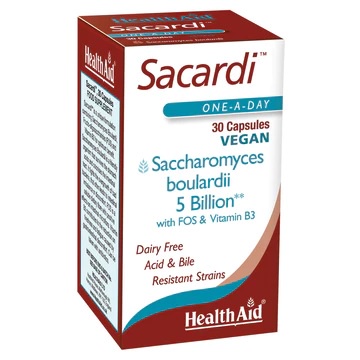Probiotics have surged in popularity in recent years, hailed as a solution for various health issues and touted for their potential to promote gut health. Probiotic supplements, in particular, have garnered attention as an accessible way to incorporate these beneficial microorganisms into daily routines. In this comprehensive guide, we delve into the world of probiotic supplements, examining their benefits, mechanisms of action, types, and considerations for choosing the right supplement for your needs.
Understanding Probiotics: Probiotics are live microorganisms that, when consumed in adequate amounts, confer health benefits to the host. Most commonly, they are bacteria, although some supplements may contain yeast strains. These microorganisms are naturally found in certain foods, such as yogurt, kefir, sauerkraut, and kimchi. However, probiotic supplements offer a convenient way to ensure a consistent intake of these beneficial bacteria, especially for individuals who may not consume probiotic-rich foods regularly.
Benefits of Probiotic Supplements: The potential health benefits attributed to probiotic supplements are diverse and continue to be explored through scientific research. Some of the most notable benefits include:
-
Gut Health: Probiotics help maintain a healthy balance of gut microbiota, which plays a crucial role in digestion, nutrient absorption, and immune function. They can aid in alleviating symptoms of digestive disorders such as irritable bowel syndrome (IBS), inflammatory bowel disease (IBD), and diarrhea.
-
Immune Support: A significant portion of the body's immune system resides in the gut. Probiotics may enhance immune function by promoting the production of antibodies and regulating inflammation, potentially reducing the risk of infections and allergies.
-
Mental Health: Emerging research suggests a link between gut health and mental well-being, often referred to as the gut-brain axis. Probiotics may influence mood and cognitive function, offering promise in managing conditions like anxiety, depression, and stress.
-
Women's Health: Probiotics may benefit women by preventing and treating vaginal infections, such as bacterial vaginosis and yeast infections, by restoring the balance of vaginal microbiota.
-
Oral Health: Certain probiotic strains have been studied for their ability to inhibit the growth of harmful bacteria in the mouth, potentially reducing the risk of cavities, gum disease, and bad breath.
Mechanisms of Action: The mechanisms through which probiotics exert their beneficial effects are multifaceted and vary depending on the specific strains and conditions. Some common mechanisms include:
-
Competitive Exclusion: Probiotics compete with pathogenic bacteria for nutrients and adhesion sites in the gut, thereby inhibiting their growth and colonization.
-
Production of Antimicrobial Substances: Certain probiotic strains produce antimicrobial compounds, such as organic acids and bacteriocins, which can directly kill or inhibit the growth of harmful bacteria.
-
Modulation of Immune Response: Probiotics interact with the immune system, stimulating the production of anti-inflammatory cytokines and enhancing the activity of immune cells, thus promoting a balanced immune response.
-
Metabolic Effects: Probiotics may influence metabolism by metabolizing dietary compounds, producing short-chain fatty acids, and modulating the expression of genes involved in energy regulation and lipid metabolism.
Types of Probiotic Supplements: Probiotic supplements come in various forms, including capsules, tablets, powders, and liquids. They may contain single strains or combinations of multiple strains, each with unique properties and benefits. Commonly used probiotic strains include:
- Lactobacillus species: L. acidophilus, L. rhamnosus, L. plantarum
- Bifidobacterium species: B. bifidum, B. longum, B. breve
- Saccharomyces boulardii: A probiotic yeast with potential benefits for gastrointestinal health
- Streptococcus thermophilus: Often found in dairy products and known for its ability to support lactose digestion
Choosing the Right Probiotic Supplement: Selecting the most suitable probiotic supplement can be challenging due to the wide array of products available on the market. Consider the following factors when choosing a probiotic supplement:
-
Strain Specificity: Different strains of probiotics may have distinct health benefits. Look for supplements that contain strains supported by scientific evidence for your specific health goals.
-
CFU Count: CFU (colony-forming units) indicate the number of viable probiotic microorganisms in a supplement. Higher CFU counts may be more beneficial, especially for addressing specific health conditions or during antibiotic use.
-
Viability and Stability: Probiotic supplements should be manufactured and stored in a way that preserves the viability of live cultures until the expiration date. Look for products with guaranteed potency through the expiration date and proper storage recommendations.
-
Additional Ingredients: Some probiotic supplements may contain prebiotics, which are substances that serve as food for probiotics and promote their growth and activity in the gut. Consider whether additional ingredients align with your health goals and dietary preferences.
-
Quality and Safety: Choose probiotic supplements from reputable brands that adhere to Good Manufacturing Practices (GMP) and undergo third-party testing for purity, potency, and safety.
Conclusion: Probiotic supplements offer a convenient and effective means of supporting gut health, immune function, and overall well-being. With their diverse benefits and mechanisms of action, probiotics continue to be an area of active research and exploration in the field of nutrition and health. By understanding the science behind probiotics and making informed choices when selecting supplements, individuals can harness the power of these beneficial microorganisms to optimize their health and vitality.


No comments yet